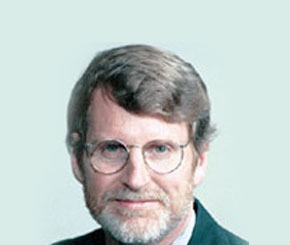Economic Trends of 2012
By siliconindia
|
Tuesday, 03 January 2012, 17:05 IST
Bangalore: The economic trends of 2012 are the consequences of the economic and political turmoil of the emerging economies which is determined by rise or fall in economic growth. This year, the Council on Foreign Relations, American nonprofit and nonpartisan membership organization, seeks the forecast of top six eminent economists to predict on the recent global economic trends for the year.
 Gary Burtless - Political Polarization and U.S.
Gary Burtless the American economist, has pointed out in US, there is an increased division of political opinion due to culture wars, which initiated a polarized response from the public. The increased political polarization in the political system and the economic downturn in global stock market shares will lead to a policy difference which will impact the future policy making. The growing turmoil in the U.S political system will give a way to partisans in the American electorate voicing their own ideologies. Differences among the ruling parties, the White House and the Congress in economic and political affairs might lead to adverse obscurity taking a more critical turn.
From the business viewpoint, the two democratic parties- Republicans and Democrats and their split opinions has set diverse differences in trade policies and economic turns, which steered away from the objective laid down in Keynesian prescription which speaks of government regulations during economic depression. Richard Nixon, the President of the United States, commented "I am now a Keynesian in economics"- which was greatly favored by Democrats at one time. Conflicting with the Keynesian principles, the Republican Party accounts for high and low debt ceilings on public expenditure, govt. de-regulation to curb economic stagnation has made the present situation more volatile and complicated in decision making.
Speculations are on the stand of Congress and the president on arriving at a general consensus on major economic and political grounds are possible. However, the current budget may not support the implementation of certain economic laws on grounds of health, reform law as set by previous congress parties. Senate might leave vacant certain Placement office positions while the dilemma in political and economic ground might result in failure to formulate a budget plan which will impede the growth process which will hinder the continuous process of discharging the federal functions smoothly. It might further slow down its process of borrowing additional funds to support the normal policy operations. This trend will continue until one party or the other gains majority.
Gary Burtless - Political Polarization and U.S.
Gary Burtless the American economist, has pointed out in US, there is an increased division of political opinion due to culture wars, which initiated a polarized response from the public. The increased political polarization in the political system and the economic downturn in global stock market shares will lead to a policy difference which will impact the future policy making. The growing turmoil in the U.S political system will give a way to partisans in the American electorate voicing their own ideologies. Differences among the ruling parties, the White House and the Congress in economic and political affairs might lead to adverse obscurity taking a more critical turn.
From the business viewpoint, the two democratic parties- Republicans and Democrats and their split opinions has set diverse differences in trade policies and economic turns, which steered away from the objective laid down in Keynesian prescription which speaks of government regulations during economic depression. Richard Nixon, the President of the United States, commented "I am now a Keynesian in economics"- which was greatly favored by Democrats at one time. Conflicting with the Keynesian principles, the Republican Party accounts for high and low debt ceilings on public expenditure, govt. de-regulation to curb economic stagnation has made the present situation more volatile and complicated in decision making.
Speculations are on the stand of Congress and the president on arriving at a general consensus on major economic and political grounds are possible. However, the current budget may not support the implementation of certain economic laws on grounds of health, reform law as set by previous congress parties. Senate might leave vacant certain Placement office positions while the dilemma in political and economic ground might result in failure to formulate a budget plan which will impede the growth process which will hinder the continuous process of discharging the federal functions smoothly. It might further slow down its process of borrowing additional funds to support the normal policy operations. This trend will continue until one party or the other gains majority.